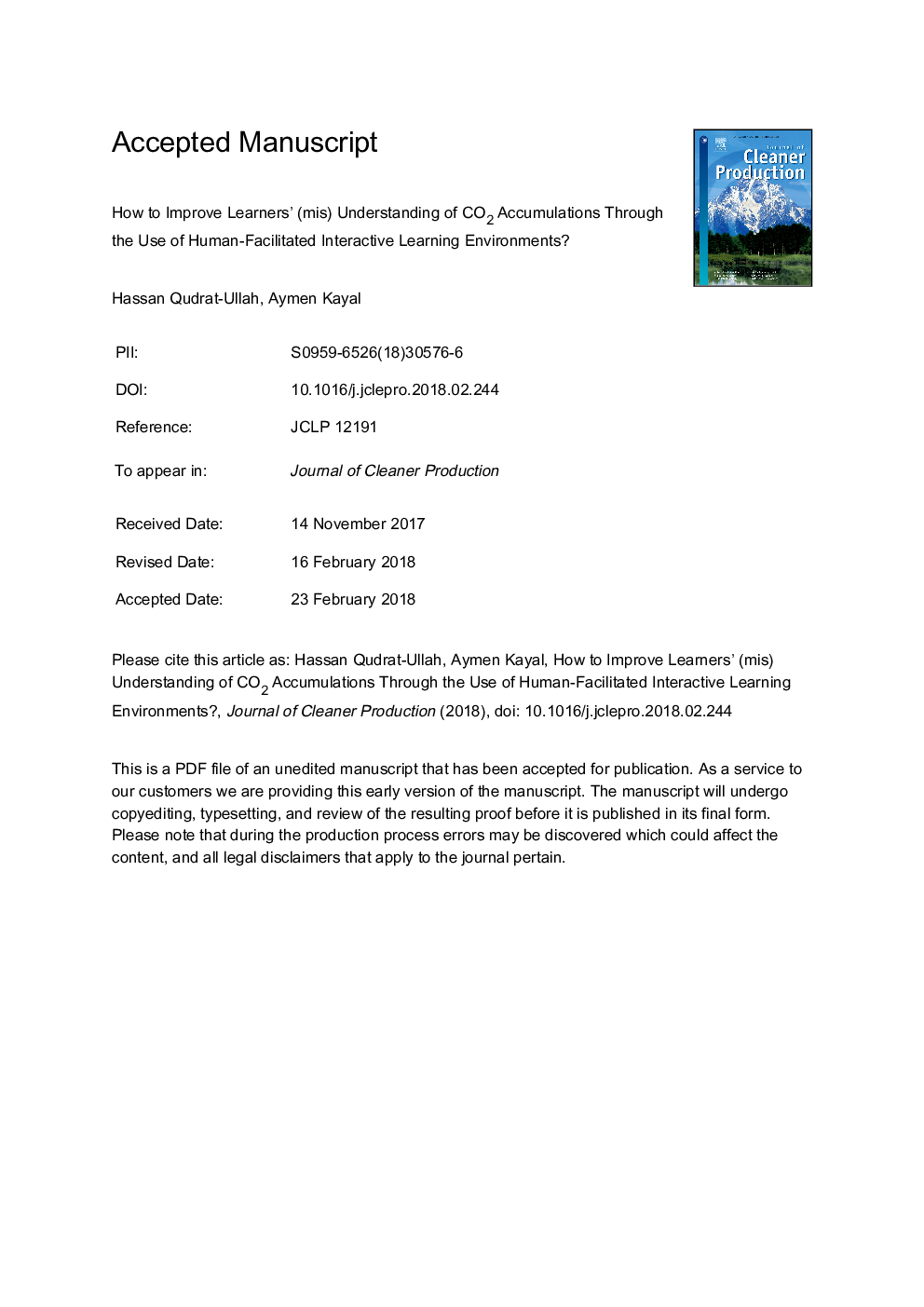| Article ID | Journal | Published Year | Pages | File Type |
|---|---|---|---|---|
| 8096643 | Journal of Cleaner Production | 2018 | 34 Pages |
Abstract
On a global scale, the need for CO2 mitigation and adaptation strategies is both compelling and urgent. While there are several challenges including political, economic, and technological, IPPC has identified the lack of mitigation and adaptation strategies and the lack of “flows of knowledge and information relevant for adaptation decisions” as the fundamental barriers to adaptation. In fact, there exists much scientific evidence of how environmental emissions (e.g., CO2) are contributing to the global warming and climate change phenomena, yet subjects in numerous experimental studies show a poor understanding of, and engagement with, environmental accumulations. How can learners' understanding of environmental accumulations be improved? We argue that the adoption of the stock and flow perspective, which provides effective tools such as System Dynamics based Interactive Learning Environments (SDILEs) for education and engagement can address this challenge effectively. In our experiments, we assessed the impact of three interventions and found that education and training with human-facilitated SDILE improved learners' understanding of, and ability to apply, the basic principle of accumulation much more than of those who were trained only with standalone SDILE or those who had a traditional lecture-based session. Such an improved understanding about CO2 accumulation is expected to support the design and implementation of mitigation and adaptation strategies needed for our sustainable future.
Keywords
Related Topics
Physical Sciences and Engineering
Energy
Renewable Energy, Sustainability and the Environment
Authors
Hassan Qudrat-Ullah, Aymen Kayal,
